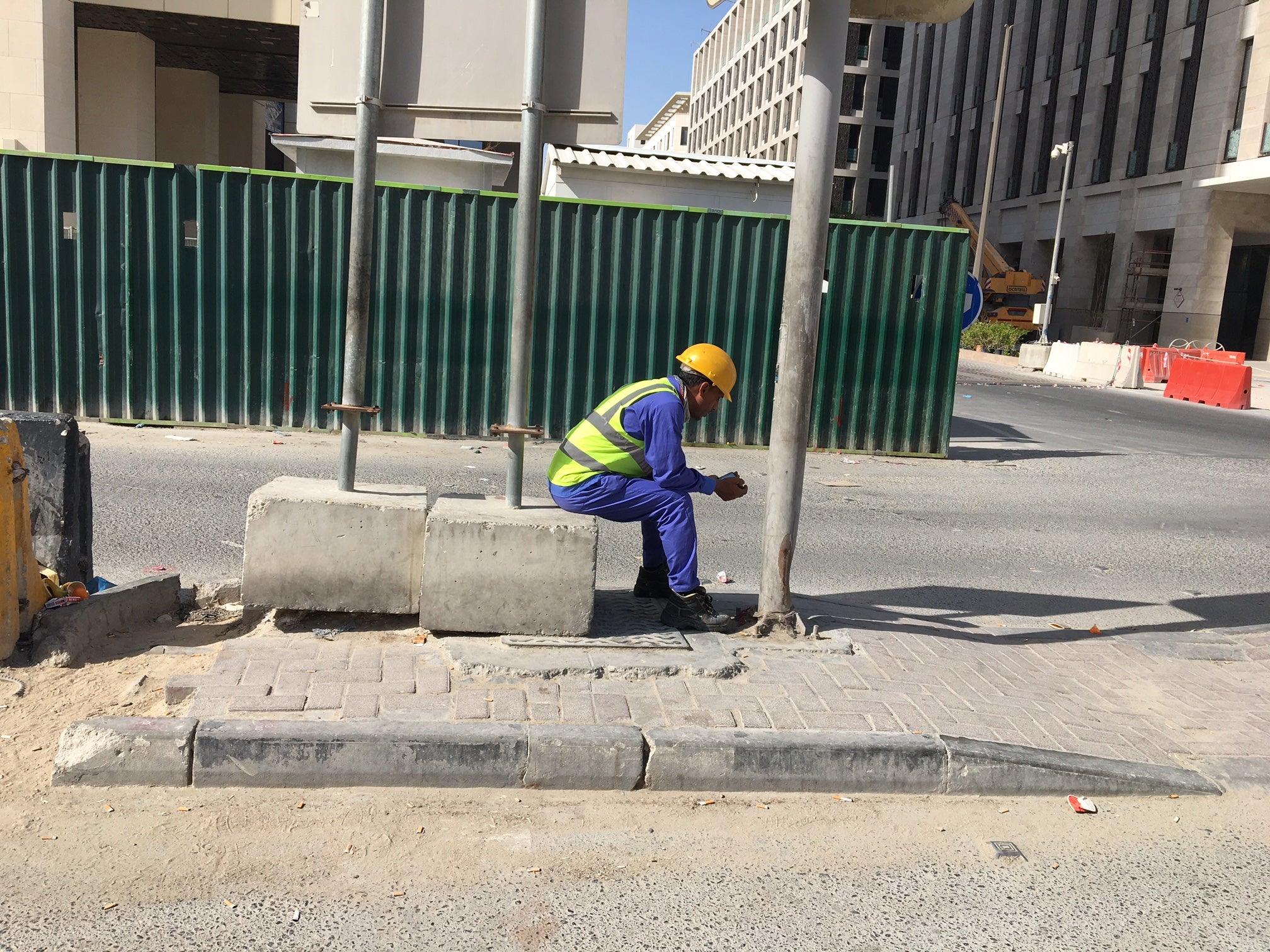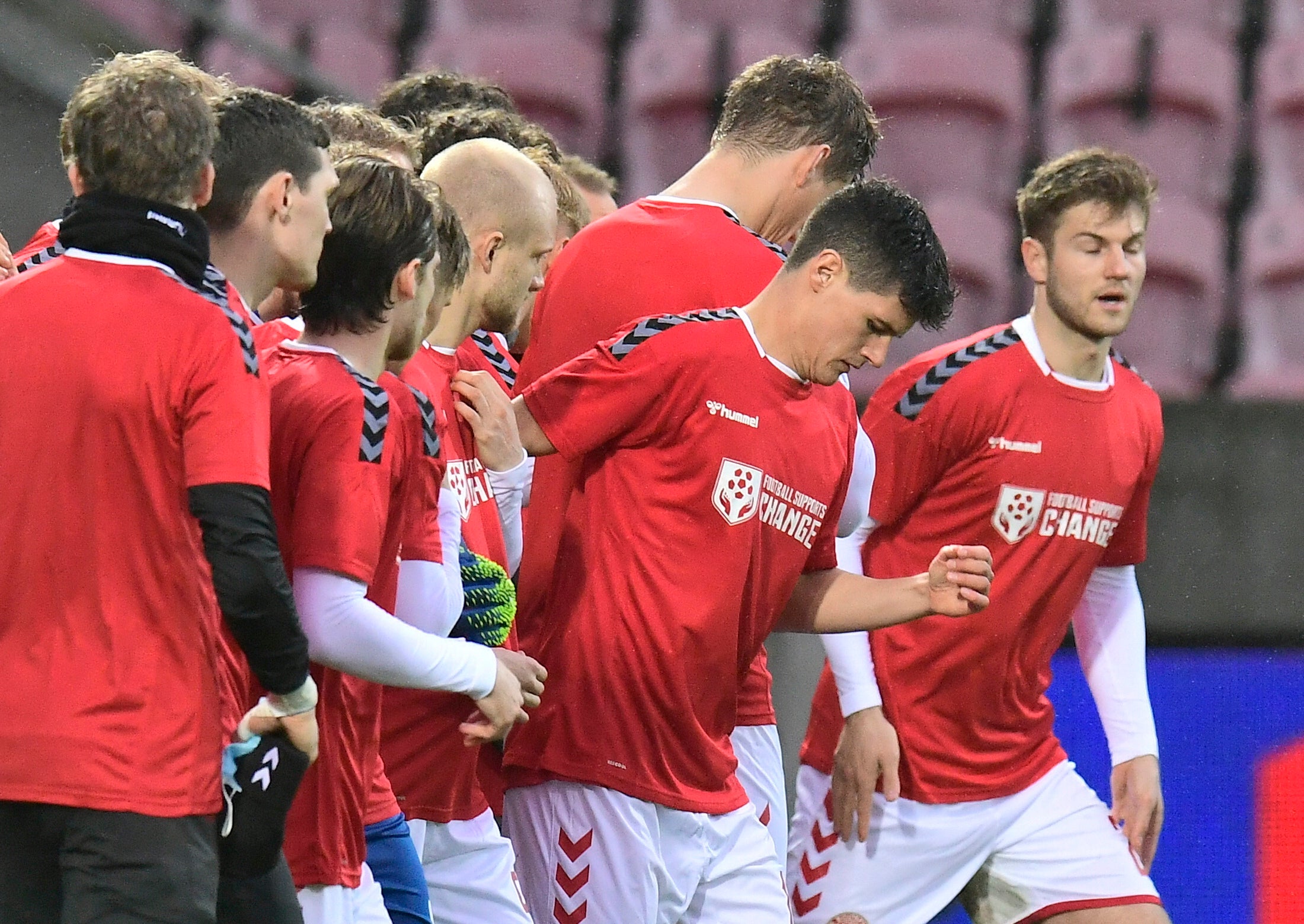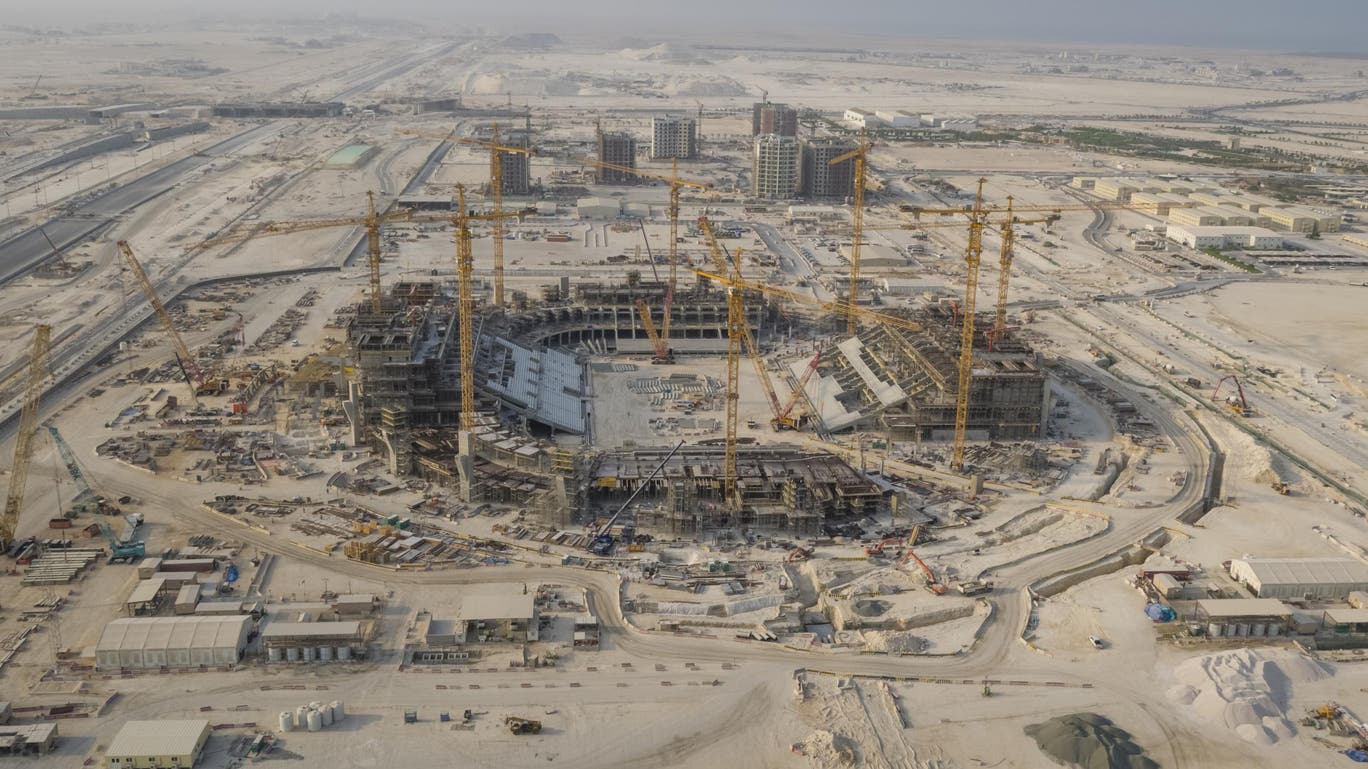Danish national football team loses sponsor amid Qatar human rights row
The Arbejdernes Landsbank is ending its contract which was due to finish at the end of next year’s World Cup

A sponsor of Denmark’s national football team has decided to end its contract as debate rages in the country about a potential boycott of next year’s World Cup finals in Qatar, over human rights concerns.
The Arbejdernes Landsbank sponsored the Danish team’s training gear as part of a four-year contract, which was due to expire at the end of 2022.
However that contract is now to set to end within the next few days, say officials, because of a “quick loan law” which says money providers such as the bank cannot advertise side by side with gambling companies.
Denmark’s other main sponsor is a betting company, Oddset.
Arbejdernes Landsbank’s boss Gert Jonassen told Danish radio on Friday that the reason the company was pulling out of its deal with the Danish Football Union – the DBU – was because of the loan act “and not about Qatar”.
“We have not got out of the sponsorship what we had hoped for because we are not allowed to be on the jerseys with Oddset. That is why we are withdrawing now,” he told the DR radio station.
That has failed to convince many who believe the football association is using it as a cover to withdraw its sponsorship because of continued controversy over the Qatar World Cup, especially in Denmark, which has been one of the fiercest critics of the decision to award the tournament to the Gulf state.
Last month, Peter Froulund, head of branding and communication, told The Independent that the Arbejdernes Landsbank, co-owned by some of the largest trades unions in Denmark, was “likely” to withdraw its branding if Denmark qualified for the finals in Qatar.
“The World Cup in Qatar is a problem,” said Mr Froulund. “We have to decide what is the best way to approach this.”

A final decision whether or not to continue with the sponsorship deal was initially expected this summer, but has now been overtaken by events this week.
The decision not to continue with the sponsorship comes as anger grows in Denmark’s participation in the tournament, which will be the first World Cup to take place in the Middle East.
Continual concerns have been raised about Qatar’s treatment of its huge migrant workforce ever since it was controversially agreed by Fifa in 2010 that the Gulf state should host the World Cup.
Despite some labour reforms by Qatar, which has embarked upon an unprecedented building programme for football’s biggest tournament as well as an estimated $200bn spending programme, critics argue that changes are not going far or fast enough.
A report in The Guardian claiming that there has been 6,500 deaths of Asian workers in Qatar since 2010 has galvanised anger against the Gulf state in some countries, including Denmark, and increased calls for a boycott of the tournament.
The recent series of World Cup qualifiers saw several teams, including Denmark, protest in favour of human rights before kick-off. In addition, there has been a growing number of Danes backing a boycott, as well as a petition calling for the issue to be debated in parliament.

These calls have been echoed in other countries, including Norway.
“The feeling is that, yes, there were issues with the commercial deal but the real issue is Qatar,” Danish journalist Troels Bager Thogersen, editor-in-chief at the magazine Tipsbladet, told The Independent.
“Qatar and Denmark’s participation in the tournament is quite unpopular among the population and has become a serious problem for the FA and for a company like Arbejdernes Landsbank, which has a strong position on ethics and sustainability in a sector plagued by scandal for years.”
The Danish Football Union has told The Independent it supports “a dialogue” with Qatar, rather than backing a boycott.
Denmark, drawn in the same group as Scotland, are on course to qualify for Qatar, having won their first three matches, one of them 8-0.
Join our commenting forum
Join thought-provoking conversations, follow other Independent readers and see their replies
Comments
Bookmark popover
Removed from bookmarks